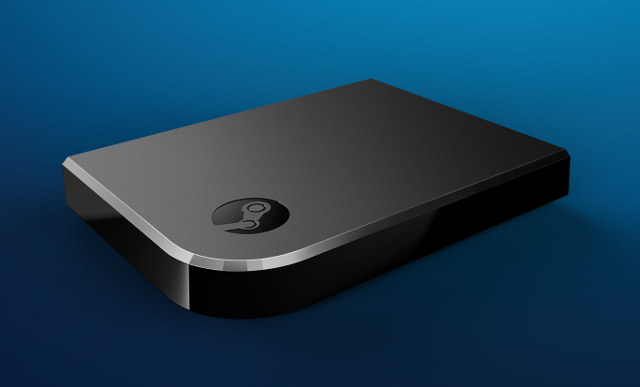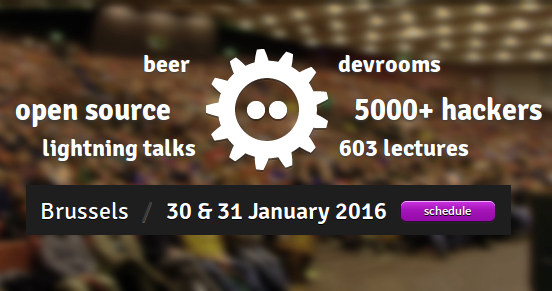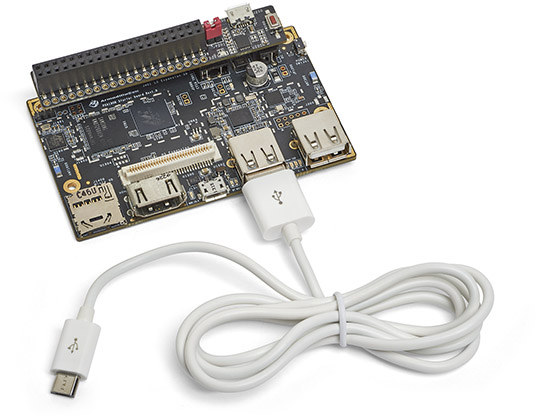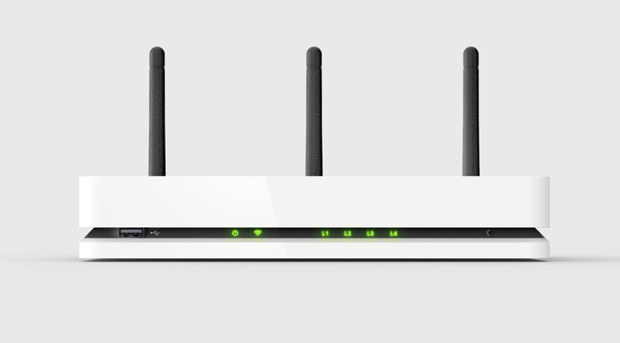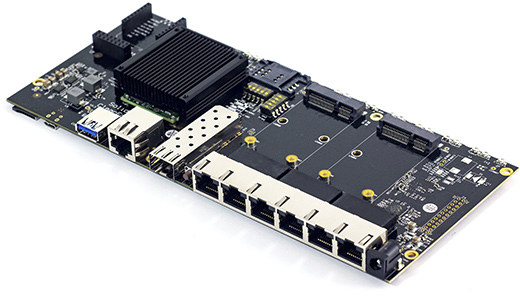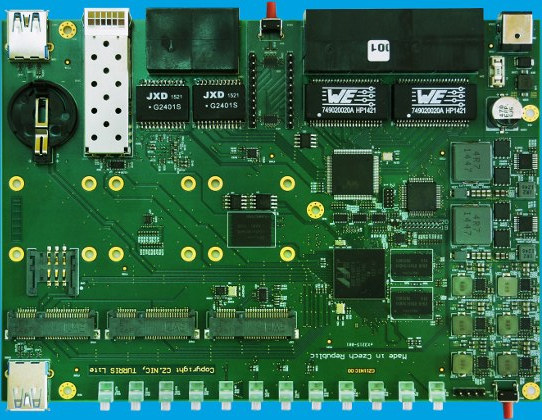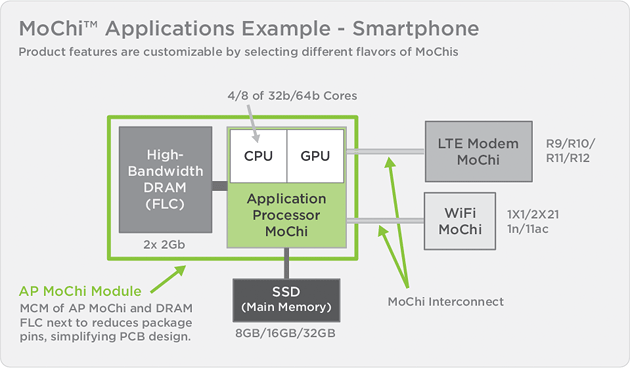Linus Torvalds released Linux Kernel 4.6 earlier today: It’s just as well I didn’t cut the rc cycle short, since the last week ended up getting a few more fixes than expected, but nothing in there feels all that odd or out of line. So 4.6 is out there at the normal schedule, and that obviously also means that I’ll start doing merge window pull requests for 4.7 starting tomorrow. Since rc7, there’s been small noise all over, with driver fixes being the bulk of it, but there is minor noise all over (perf tooling, networking, filesystems, documentation, some small arch fixes..) The appended shortlog will give you a feel for what’s been going on during the last week. The 4.6 kernel on the whole was a fairly big release – more commits than we’ve had in a while. But it all felt fairly calm despite that. Linux 4.5 added […]
SDK Released for Steam Link Based on Marvell ARMADA 1500 Mini Processor
Steam Link is a small $50 device that streams PC Games played from Steam PC or Steam Machine to your TV up to 1080p resolution through your home network, and Valve has recently released an SDK to allow developers creating their own apps. But before getting into the SDK features, let’s check out the hardware. The company (Valve) did not provide many details, but some users torn it down, so the hardware specs are not a secret anymore. SoC – Marvell DE3005-A1 ARMv7 processor @ 1.0 GHz with OpenGL ES2.0 capable GPU System Memory – 512MB RAM (Micron MT41K256M16LY-107) Storage – 4GB NAND flash (Micron MT29F32G08CBAC) Video Output – HDMI up to 1080p60 Connectivity – 10/100M Ethernet, WiFi 802.11 b/g/n/ac and Bluetooth 4.0 LE via Marvell 88W8897 wireless chip USB – 3x USB 2.0 host ports Power Supply – 5V via power barrel Dimensions – N/A Marvell DE3005-A1 is also […]
FOSDEM 2016 Schedule – Open Source Hardware and Software Event in Europe
FOSDEM (Free and Open Source Software Developers’ European Meeting) is a 2-day event that usually takes place on the first week-end of February in Brussels, but this year it will be on January 30-31. The event brings thousands of developers, hackers, and other person interested in open source technology who present their projects and share ideas. FOSDEM 2016 schedule is now available, and There will be 557 speakers, 612 events, and 50 tracks this year including 7 main tracks: Distros, Enterprise, Hardware, Communications, Miscellaneous, Office, Systems Administration, and Virtualization. So I’ve had a look at some of the talks, especially out of “Embedded, Mobile and Automotive” and “IoT” devrooms, and prepared my own virtual schedule although I won’t be able to attend. Saturday 10:30 – 10:55 – MIPS, the other side of the embedded by Alexjan Carraturo For many years MIPS processors have been involved in the embedded market, particularly […]
AndroMeda Box Edge Brillo Starter Board Features Marvell IAP140 Processor, 96Boards Form Factor
Google announced Brillo, a new operating system based on Android and targeting the Internet of things, at the end of October. The company also disclosed that ARM, MIPS and x86 architectures were supported via respectively TechNexion Pico-i.MX6UL system-on-module and PICO-DWARF baseboard, MIPS Creator CI-40 board, and Intel Edison development board. A few days later, Marvell announced Andromeda Box, an IoT platform supporting Brillo and Weave, based on IAP140, a quad-core ARM Cortex A53 application processor for the “Edge” version, and ARMADA 385 dual core Cortex A9 processor for the “Connect” version, but without the full details. AndroidMeda Box Edge is now listed on Solid Run and Arrow websites, where it is sold for $74.99. If the board looks familiar, it’s because it clearly follows 96Boards form factor, but instead of officially being supported by Linaro, it has been designed specifically as a Google’s Brillo development platform with the following specifications: […]
Turris Omnia Open Source Hardware Router’s Crowdfunding Campaign is Up
CZ.NIC is a non-profit organization running the .cz domain of the Czech Republic, and as part of their activities they are also making open source hardware routers such as Turris 1.1 based on Freescale QorIQ P2020 communication processor. I’ve previously written about Turris Omnia router based on Marvell ARMADA 385 dual core processor, and the organization has now launched an Indiegogo campaign where you can get the bare board for $99, and a complete router with WiFi modules, power supply, cables, and enclosure for $189, shipping not included. Turris Omnia router specifications: Processor – Marvell ARMADA 385 (88F6820) dual core ARMv7 processor @ 1.6 GHz with 1MB L2 cache System Memory – 1GB DDR3 Storage – 4GB flash, mSATA slot Connectivity 5x Gigabit Ethernet LAN ports 1x Gigabit Ethernet WAN port 1x SFP cage 3×3 MIMO 802.11ac, 2×2 MIMO 802.11 b/g/n (Included in router perk, not with bare board) SIM […]
SolidRun ClearFog Pro and Base Router Boards Feature Marvell ARMADA 380/388 Processor
Last month, I wrote about Turris Omnia an upcoming open source hardware router board with 6 Gigbit Ethernet ports and an SFP cage powered by Marvell ARMADA 385 processor. SolidRun has now unveiled ClearFog Pro router board with similar features, but opting instead for either Marvell ARMADA 380 or 388 processor. The company will also soon launch or lower-end version called ClearFog Base with the less ports, but with the same system-on-module as ClearFog Pro: Processor – Marvell ARMADA 380 (88F6810) single core or 388 (88F6828) dual core ARMv7 processor (Cortex A9 class) @ up to 1.6 GHz with 1MB L2 cache, NEON and FPU System Memory – 256MB to 1GB 16-bit DDR3L (ARMADA 380) or 32-bit DDR3L (ARMADA 388) Storage Pro version – M.2 slot, 1x micro SD slot, 2x mSATA/mPCIE Base version – M.2 slot, 1x micro SD slot, 1x mSATA/mPCIE Connectivity Pro version – 6x switched Gigabit […]
Turris Omnia is a Feature-Packed OpenWRT Router Board Powered by Marvell ARMADA 385 Processor
FireWRT and WiTi router boards based on Mediatek MT7621A processor offer lots of high speed interfaces with multiple Gigabit Ethernet ports, SATA connectors, and USB 3.0 ports, as well as 802.11ac connectivity for $70 to $80. Sadly FireWRT development was canceled once the company realized they could not get the Mediatek SoC at the right price, and while WiTi router has not been shipped to backers just yet. An even more powerful solution, which should cost $100 and up, is now in development with Turris Omnia board powered by Marvell ARMADA 385 dual core ARMv7 processor, and made in the Czech Republic. Turris Omnia board specifications: Processor – Marvell ARMADA 385 (88F6820?) dual core ARMv7 processor (Cortex A9 class) @ 1.6 GHz with 1MB L2 cache System Memory – Up to 1GB DDR3 Storage – 4GB flash, mSATA slot Connectivity 5x Gigabit Ethernet LAN ports 1x Gigabit Ethernet WAN port […]
Marvell Announces AP806 Cortex A72 & ARMADA A3700 Cortex A53 Virtual SoCs based on MoChi & FLC Architecture
Marvell has published a press release introducing AP806 quad core Cortex A72 and ARMADA A3700 dual and single core Cortex-A53 chips. But these two chips are called Virtual SoCs (VSoC) and they are said to use MoChi and FLC (Final Level-Cache) architecture. What does this all means? If I understand correctly, Marvell has decided to create modular SoCs that may just integrate the minimum: CPU, GPU, and memory controller, with other peripherals like Ethernet, SATA, LTE Modem added to the virtual SoC in some ways just like legos. This is done in order to mitigate the cost of manufacturing chips with advanced process nodes (e.g. Finfet 16) with usually has high steep mask costs, and wafer prices. So they may have a single AP806 MoChi module, to create multiple SoCs using different MoChi modules to add peripherals. Marvell listed some of the key befinits of modular SoCs: Changing existing software […]



